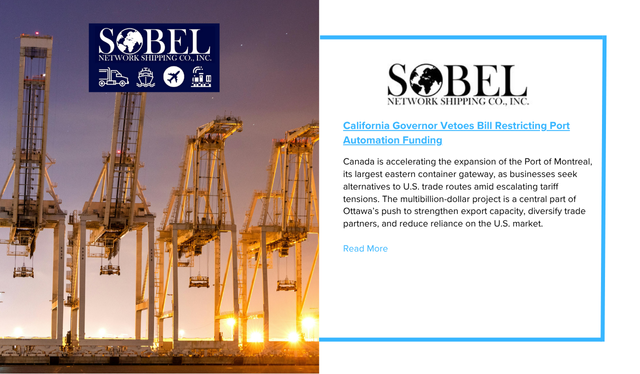Governor Gavin Newsom has vetoed legislation that would have restricted public funding for automation investments at California’s major container ports, averting what industry groups described as a potential setback to port modernization and competitiveness.
The bill, SB 34, sought to prohibit the use of state, local, or federal funds to support automation or remote operations at the Ports of Los Angeles and Long Beach—the nation’s two busiest gateways for containerized imports.
Proponents of the measure, including the International Longshore and Warehouse Union (ILWU), argued that public funds should not be used to finance technologies that could eliminate dockworker jobs. However, trade and terminal industry representatives warned that the bill would stifle investment and undermine California’s logistics infrastructure at a time when efficiency and environmental upgrades are critical.
The ports, which serve as key nodes in U.S. trans-Pacific trade, faced unprecedented congestion during the COVID-19 pandemic, exposing systemic challenges tied to outdated yard operations and limited automation capacity.
In his veto message, Governor Newsom said the legislation would have interfered with ongoing discussions between port authorities and the South Coast Air Quality Management District (SCAQMD), which is developing emissions regulations for the region’s logistics operations. The governor emphasized the importance of allowing those cooperative negotiations to continue without additional legislative constraints.
The proposed bill was initially introduced as part of a broader air-quality initiative but included provisions limiting funding for automation projects—an element that drew strong opposition from private terminal operators and the Pacific Maritime Association (PMA), which represents employers at West Coast ports.
Industry leaders have argued that modernization, including selective automation, is essential to maintaining competitiveness with rapidly advancing ports abroad, particularly in Asia and Europe.


